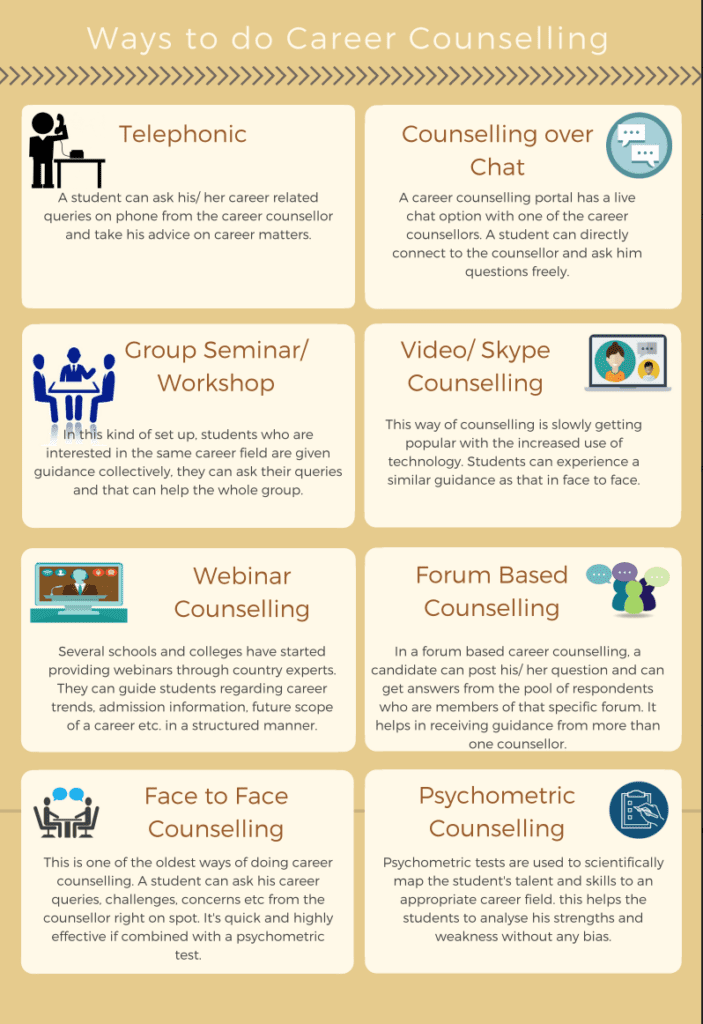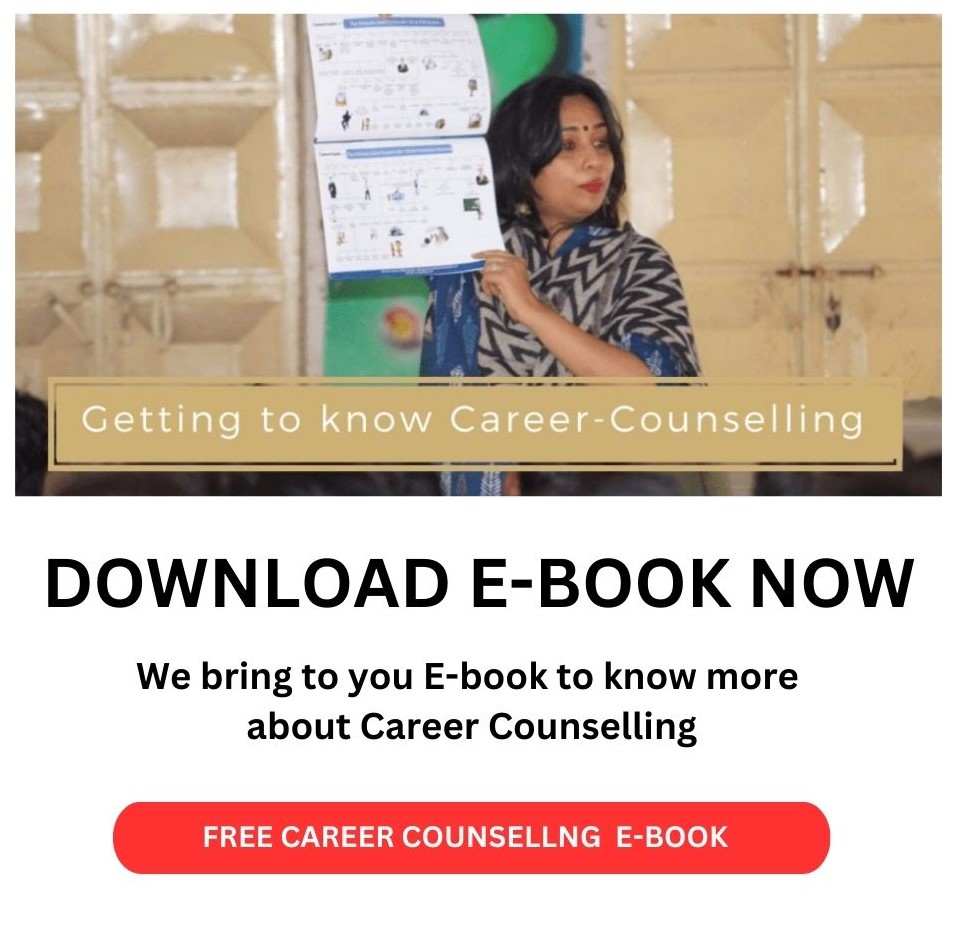The term “Elements Of Career Counselling” refers to a variety of services. Counselling is the practice of supporting someone by providing career guidance, moral support, and seeking answers to their problems in its broadest definition. The word “counselling” conjures up images of a professional supporting a person in distress. This specialist is well-versed in human behaviour and personality, as well as how to direct people’s thinking in the right direction. This individual is someone you can turn to in times of uncertainty and who ensures that your needs are met. The relationship between a Counsellor and a Counselee is based on mutual respect and trust. This is critical while counselling since it aids in the fulfilment of the final goal, which is to assist the counselee in resolving his problems. We will now further discuss about Elements of career counselling Career Counselling.
What is Career Counselling?
Career counselling is a method of supporting people in better understanding themselves and current workplace trends. Consequently, individuals can make educated decisions about their jobs and education. Furthermore, career counselling can help with a range of challenges. For instance, it can assist with poor time management, family trust issues, and parent-child conflicts regarding which career to pursue. Now, let’s take a closer look at the elements of Career Counseling to gain a better understanding.
A Professional Career Counselor
A true Career Counsellor is the epitome of sound advice, making them the most crucial component of any career counselling process. Firstly, career counsellors are psychology experts, which means they should have a post-graduate degree in psychology/applied psychology, as well as a diploma in counselling psychology. Additionally, career counsellors who offer guidance in a specific industry, such as engineering, management, or hospitality, must be experts in that subject. Furthermore, a competent Career Counsellor possesses various skills. They are problem solvers, skilled listeners, and observers, and they possess sufficient knowledge about a variety of disciplines to help you make informed career selections.
A Secure Environment, Confidentiality And Trust Agreement and Relevant psychometric assessments
Creating a safe and secure environment in which the student feels at ease and can speak openly about his or her life and profession is the primary goal of career counselling. This process is built on a trust and confidence connection between the career counsellors and the student. Moreover, the counsellor may discuss the student’s emotional and developmental concerns in an attempt to provide assistance, which can sometimes be distressing. Therefore, it is essential for the student and parent to have complete faith in the Counsellor’s ability to handle such situations. Additionally, Psychometric Testing (Career Assessment) plays a significant role in career counselling. It is a scientific and systematic method of assessing a person’s abilities and personality. Furthermore, psychometric exams are techniques used by counsellors to gather the most critical information about a student’s behavior, emotional strength, interests, and abilities.
When Should You Seek Career counselling?
The greatest candidates for Career Counseling are students between the ages of 13 and 17. (8th standard to 12th standard). At this point in their lives, they are going through a lot of physical and emotional changes, such as transitioning from high school to college and attempting to “fit in” with their classmates. It’s also a time when people are making career decisions. As a result, they need quick assistance. The majority of our parents are actively involved in our career development; in fact, at least 51% of Indian parents prioritize their child’s financial success (according to a survey conducted by HSBC Retail Banking and Wealth Management in a report titled “The Value of Education: Learning for Life”).
We can properly presume that our parents adopt a hands-on approach when it comes to making professional decisions for us. It works on occasion and fails regularly. This is because each child is unique, and it is extremely difficult for parents or teachers to discover a child’s strengths and limitations, as well as his hobbies and dislikes, consistently. This is just another reason why career counselling is vital. In the following ways, career counselling can help students:
FAQs About Elements Of Career Counselling
Q. What is career counselling?
A. Career counselling is the process of helping individuals explore, choose, and pursue a career that is best suited for their skills, interests, values, and personality. It involves the use of various tools and techniques to help clients make informed career decisions.
Q. What are the benefits of career counselling?
A. Career counselling can help individuals make informed career decisions, identify their strengths and weaknesses, set career goals, develop a career plan, and overcome career-related challenges. It can also improve job satisfaction, work-life balance, and overall well-being.
Q. What are the common elements of career counselling?
A. Some common elements of career counselling include several key components. Firstly, self-assessment is conducted to gain a better understanding of one’s skills, interests, and values. Following that, exploration of career options allows individuals to explore various paths and industries. Moreover, career planning and goal-setting help individuals map out their career objectives and establish a clear direction. Additionally, job search strategies are provided to assist in finding employment opportunities, while resume writing and interview preparation enhance one’s chances of success in the job market. Lastly, ongoing career management ensures that individuals can adapt to changing circumstances and continue to make progress in their careers.















